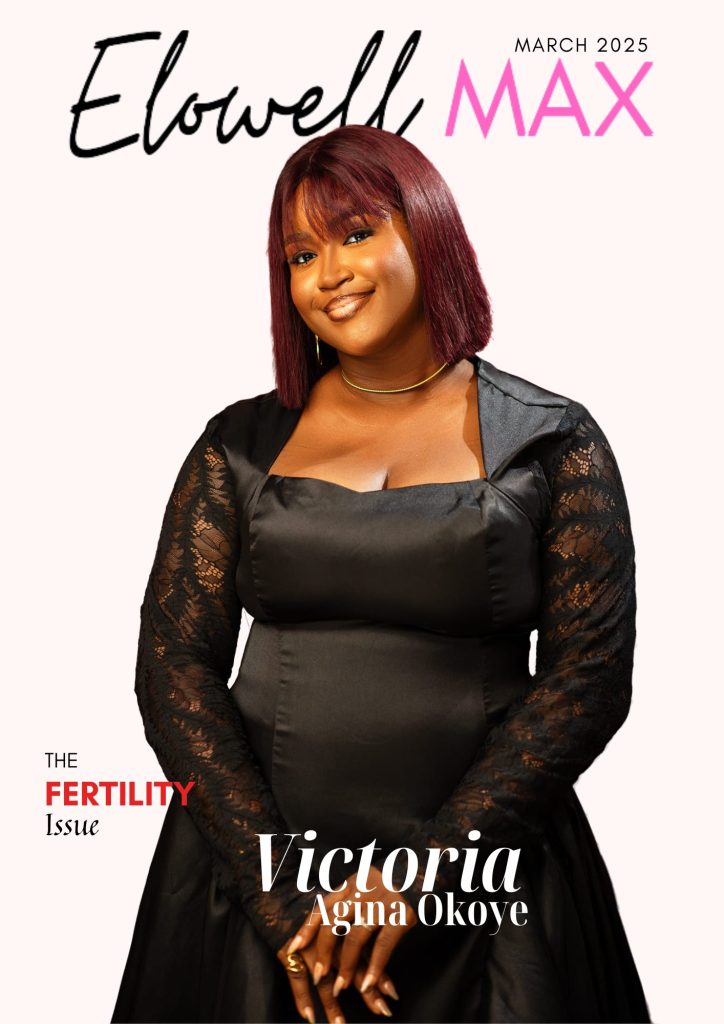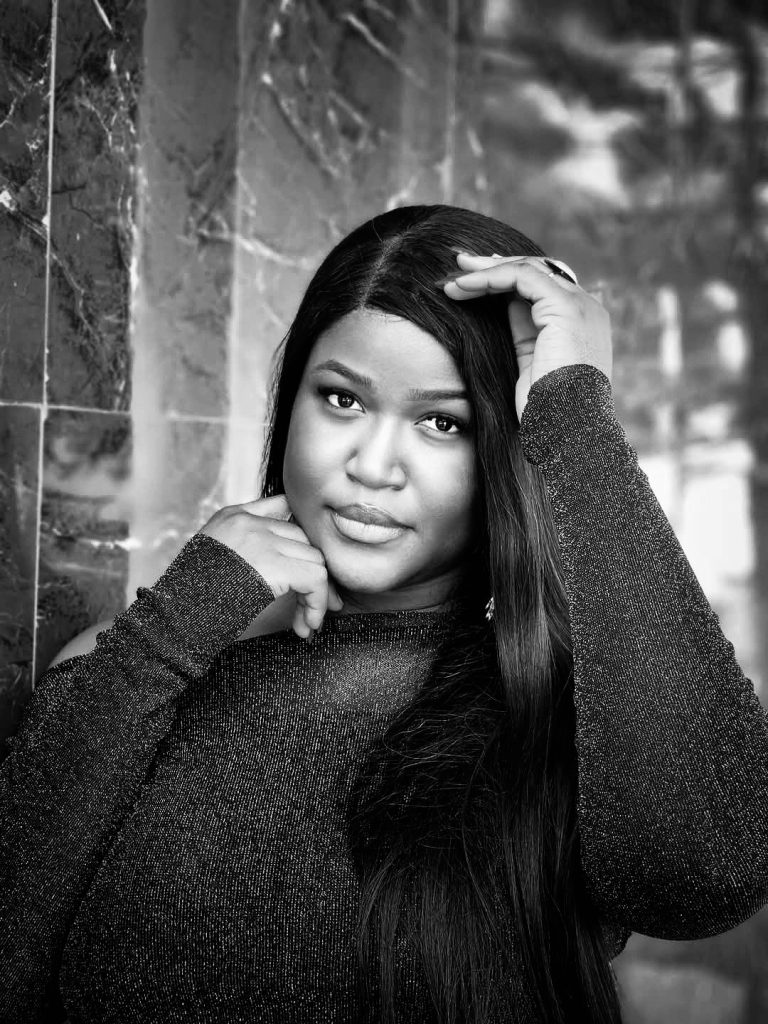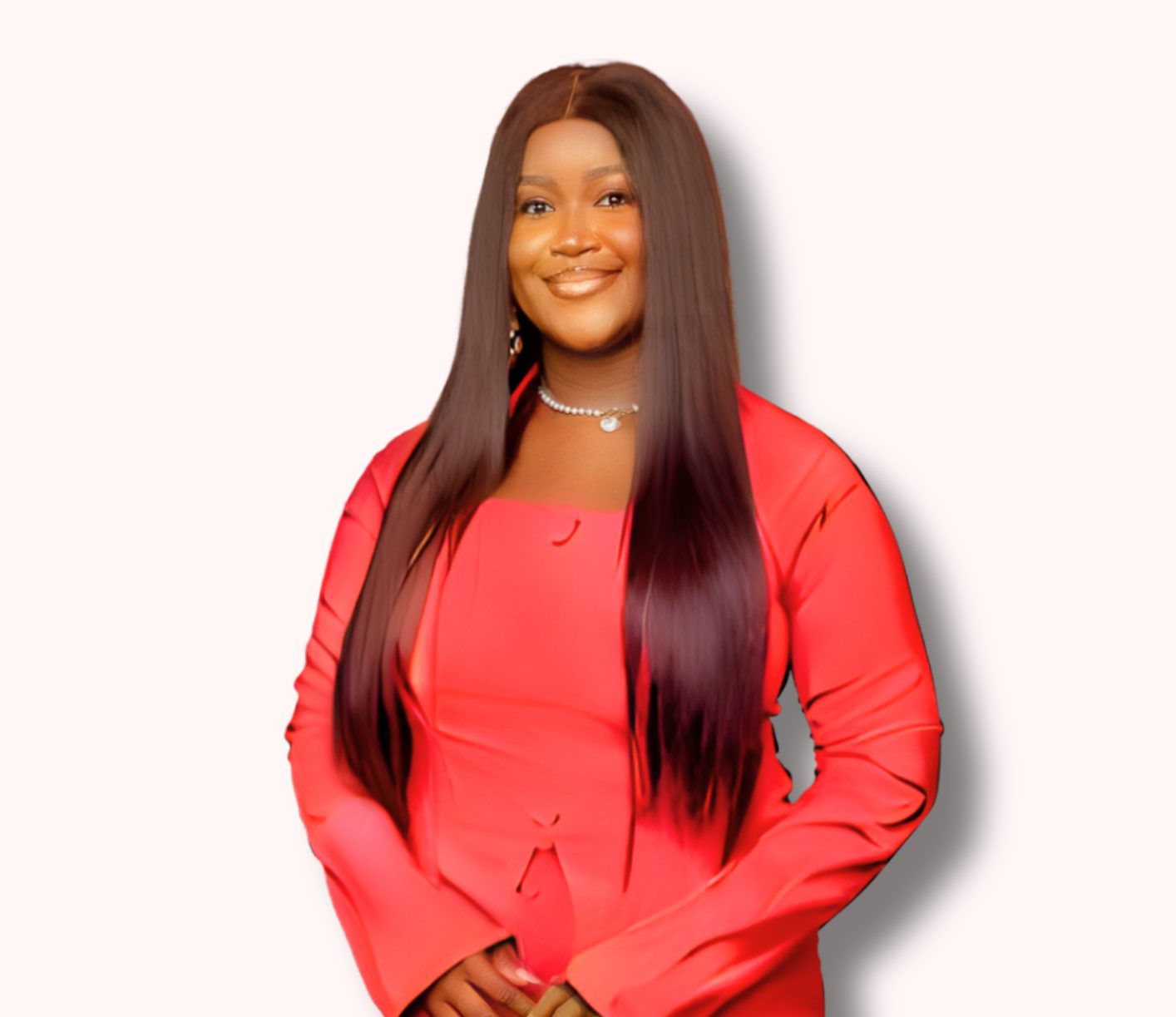From fighting PCOS to fighting misinformation, Victoria Agina-Okoye isn’t here to play nice. The founder of Glamorous Queens Network is turning her struggles into strength, breaking taboos, and proving that women’s health deserves more than whispers. Here, she gets real about infertility, body battles, and why she’s done with the sugarcoating.
At 9 a.m. on a breezy Tuesday morning, I’m on the phone with Victoria Agina-Okoye. Her voice is warm but steady, carrying the weight of someone who has had to learn resilience the hard way. We’re only a few minutes into our conversation when she says something that lingers long after she’s said it.
“Healing isn’t just about the body—it’s about the mind, the soul, and the way you choose to fight for yourself every day.”
There’s a pause, as if she’s letting the words settle. For years, she fought to understand what was happening inside her body, enduring fatigue, mood swings, and the crushing disappointment of trying to conceive with no success. She remembers being 18 and bleeding for two weeks straight, the first sign that something was wrong. Doctors brushed it off, prescribing medication to stop the excessive flow, but offered no real answers. It would take years—and a painful journey through misdiagnoses, misinformation, and invasive treatments—before she finally learned the truth: she had Polycystic Ovary Syndrome (PCOS).

The journey to understanding her health has been long and difficult, but today, she stands in a place of knowledge, strength, and advocacy—not just for herself, but for hundreds of women who share her struggles.
As the founder of Glamorous Queens Network, an online community dedicated to women’s empowerment, Victoria has built more than just a support group. What began in 2020 as a small initiative has now grown into a thriving sisterhood of over 700 women, offering guidance, encouragement, and shared experiences. Many of these women battle conditions like PCOS, infertility, hormonal imbalances, and emotional health challenges, topics that are often misunderstood or dismissed. For her, this platform is not just about this conversation; it’s about equipping women with the knowledge and confidence needed to survive.
She had always had irregular periods, but she never really thought much of it beyond the inconvenience. It wasn’t until she was actively trying to get pregnant that she realized something was seriously wrong. “I wasn’t just dealing with unpredictable cycles; I had fatigue, weight gain in my upper body, belly, and shoulders, hormonal acne, insomnia, and anovulation. Everything suddenly made sense when I was officially diagnosed with PCOS.”

Living with Polycystic Ovary Syndrome (PCOS) has been an uphill battle, physically and emotionally. The condition, which affects millions of women worldwide, has made what should have been a natural and joyful journey to motherhood a frustrating struggle. “Trying to conceive has been one of the hardest experiences of my life. It’s been over two years, and despite multiple ovulation induction cycles and even IVF, I still haven’t had a successful pregnancy. The emotional toll is something I wouldn’t wish on anyone. The rollercoaster of hope and disappointment, the painful procedures, the endless waiting—it’s overwhelming.”
“Trying to conceive has been one of the hardest experiences of my life”
Beyond infertility, PCOS has affected every aspect of her daily life. Mood swings, exhaustion, and the frustration of feeling trapped in a body that refuses to cooperate have been constant struggles. There were days when she barely recognized herself—waking up tired, feeling drained throughout the day, and then battling insomnia at night. It often felt like her body was working against her. The weight gain only added to the challenge. Many assumed she wasn’t taking care of herself, unaware of how difficult PCOS makes it to lose weight, no matter how much effort is put in.
Her journey through the healthcare system was another challenge. Initially, she encountered doctors who lacked knowledge about PCOS, resulting in years of mismanagement. The first doctor she saw gave her false information. He prescribed medications that did absolutely nothing for her. “I felt like I was just going in circles, taking pills that weren’t helping. It wasn’t until I found a doctor who truly understood PCOS that I started seeing real progress. My symptoms have improved significantly, and my periods, which used to be long and heavy, now last about four days. That’s a huge improvement from the seven-plus days of excessive bleeding I used to experience.”
Despite the progress, the misconceptions surrounding PCOS remain a major frustration for her. One of the biggest myths she wants to dispel is the idea that all women with PCOS experience the condition the same way. “PCOS isn’t a one-size-fits-all diagnosis. There are different types, and what works for one person might not work for another. Some women have classic PCOS, others have ovulatory PCOS, non-polycystic ovary PCOS, or post-pill PCOS. It’s frustrating when people assume that just because something worked for their friend, it should work for everyone.”
Another widely held misconception is that women with PCOS are infertile. “I hear this all the time, and it’s just not true. PCOS makes it harder to get pregnant, yes, but it doesn’t mean you can’t. Some women with PCOS ovulate normally, and many go on to conceive with or without medical intervention. It’s important that we stop spreading fear and misinformation about fertility.”
She also emphasizes that PCOS is far more than just a reproductive issue. Many people assume it only affects fertility, but in reality, it is a full-body condition. It impacts metabolism, heart health, hormone levels, and even mental well-being. She has experienced fatigue, mood swings, and days where she felt completely out of control. The condition extends beyond irregular periods—it influences nearly every aspect of life.

Managing PCOS has required a complete lifestyle shift, something she admits hasn’t been easy. “The first thing I had to do was cut out sugary foods, junk, fizzy drinks, and anything high in cholesterol. It was hard because I love food, but I knew I had to make a change. I started incorporating more fruits and vegetables into my diet, and slowly, I saw improvements.”
Exercise became another challenge for her. She noticed that whenever she engaged in strenuous activity right after her period, she would start spotting or even bleeding again. It was a frustrating experience because she wanted to stay active, but her body didn’t cooperate. To manage this, she had to modify her workouts, avoiding skipping and heavy core exercises. Instead, she focused on walking and light movement, which proved to be more sustainable for her condition.
Stress management has also played a huge role in her journey. “I avoid stress as much as I can, both emotionally and physically. I’ve learned to rest and not overdo it. I used to overthink everything, but now I focus on making myself happy. Having a supportive husband has helped so much. He understands what I’m going through and never makes me feel like I’m in this alone.”
I’ve learned to rest and not overdo it. I used to overthink everything, but now I focus on making myself happy
In addition to lifestyle changes, medication and supplements have been crucial. She took several medications to stimulate ovulation, and supplements to help with her sugar levels and hormone balance. Recently, she started drinking spearmint tea to manage mild hirsutism and chamomile tea to help with insomnia. “It’s a constant process of trial and error, but I’m seeing positive changes.”
For women newly diagnosed with PCOS, she offers a simple but powerful message: you are not alone. “I know how overwhelming it feels at first, but don’t panic. PCOS isn’t a death sentence. It’s tough, but you can manage it. Take time to learn about your body and what works for you. Work with a doctor who understands PCOS—don’t just take advice from social media. Find a community of women who are going through the same thing. And most importantly, be kind to yourself. Celebrate the small wins, whether it’s a more regular period, a good night’s sleep, or just getting through the day.”
She believes that the medical community, media, and workplaces all need to do better when it comes to supporting individuals with PCOS. “Doctors need better training. Some don’t even know what PCOS really is, and that’s a huge problem. We need clearer diagnostic guidelines and better access to specialists. The media needs to stop spreading misinformation and start portraying PCOS accurately. Women with hirsutism or sudden weight gain are constantly trolled online because people don’t understand what’s happening to them. We need more awareness, more research, and less stigma.”
Her hope is that by speaking out, more women will feel empowered to take control of their health. “PCOS doesn’t define me. It’s a part of my story, but it’s not my whole story. If sharing my journey helps even one woman feel seen, then it’s worth it.”
CREDITS:
Makeup: @Snazzystouch_Makeovers. Photography: Meek Photography. Hair: PrettyChizyHair



